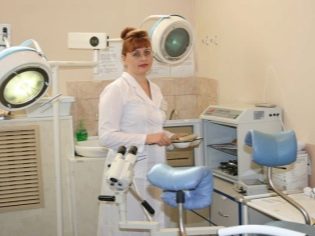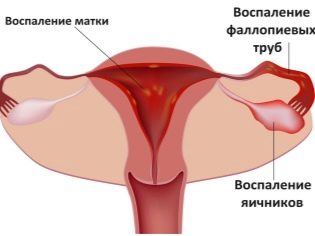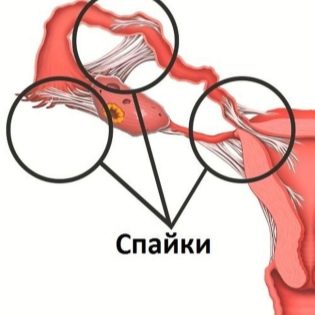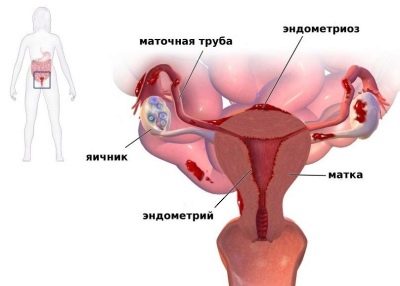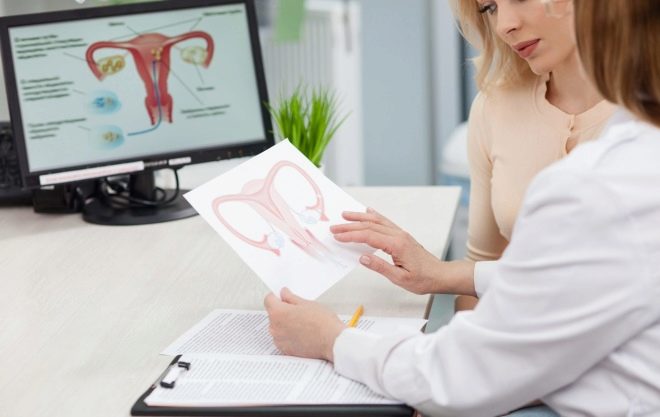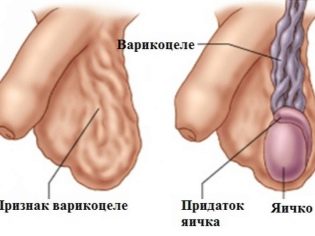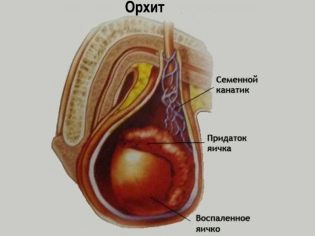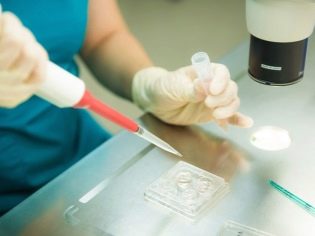What does grade 1 sterility mean and how to treat it?
With the diagnosis of infertility of 1 degree firsthand, unfortunately, quite a lot of people are familiar. Often this diagnosis sounds like a sentence, but this is not the case. This article will help you understand what first-degree infertility means and how to treat it.
What it is?
Difficulties with the conception of the long-awaited baby may occur in almost every pair. Not everyone manages to conceive a child from the first, but this is not a reason to talk about infertility. The diagnosis of "infertility" is set by doctors in the case when, after repeated attempts during the year, the couple could not conceive a child.
Doctors distinguish several clinical variants of infertility. One of them is infertility of the first degree. The problem in this situation can be both for a man and a woman. So, the first degree of female infertility is said if a woman, despite repeated attempts, has not had a single pregnancy. Male infertility of the first degree is implied in the case that after unprotected sexual acts, none of the male partners became pregnant.
The reasons that may contribute to the development of this pathological condition are very diverse. Some of them are reversible, that is, with the right therapy, the chances of conceiving a baby still exist.
In order to determine that one of the partners has first degree infertility, it is necessary to conduct a comprehensive diagnosis of each of them.
Causes leading to pathology
When contacting a couple who dreams of the imminent appearance of a baby, doctors must make a thorough diagnosis of the health status of each of the partners. For this, both men and women need to be tested and undergo instrumental studies prescribed by doctors.
From the woman’s side
The reasons that contribute to the development of infertility of the first degree, women are quite a lot. Perhaps the most frequent of them are diseases of the reproductive organs. Thus, inflammatory pathologies of the ovaries, fallopian tubes and the uterus itself can be a threat to the development of serious problems with the conception of a baby. The fact is that chronic inflammation causes damage to the reproductive organs, which is accompanied by a violation of their functioning. Ultimately, this contributes to the fact that it becomes much more difficult for a woman to become pregnant.
Doctors identify several groups of pathologies that can contribute to the development of infertility of 1 degree. Reproductive diseases in women can be:
- Congenital They are associated with anomalies and defects in the structure of the reproductive organs. As a rule, such diseases are formed during the period of intrauterine development. In this case, a little girl is already born with a certain pathology, but the disease manifests itself much later - at the reproductive age.
- Acquired. These diseases develop in women already at reproductive age. As a rule, such pathologies occur in a chronic form and can manifest themselves with the development of various adverse symptoms.
The development of infertility 1 degree can lead to various anatomical defects in the structure of the uterus. So, the uterus can be saddle, two-horned, or have additional jumpers in its cavity.Such an abnormal structure can lead to difficulties with natural conception and even contribute to the development of infertility.
If the problem is too pronounced, in this situation, doctors can advise only an alternative way to add to the family - surrogate motherhood.
In some cases, a strong cicatricial process can lead to the development of grade 1 infertility. Adhesions, which, as a rule, appear after previous surgical interventions, can lead to disruption of the physiological functioning of the internal organs. Adhesions in the pelvis - a common cause contributing to the development of obstruction of the fallopian tubes.
The presence of adhesions in the uterine appendages can lead to the fact that a mature healthy egg just can not meet with sperm. This situation leads to the development of infertility.
In order to cope with these symptoms, a mandatory treatment and removal of adhesions are required. Without normalization of the patency of the fallopian tube to achieve natural fertilization, unfortunately, is impossible.
Endometriosis is another insidious pathology that can lead to the development of infertility. Unfortunately, this disease has become increasingly common in gynecological practice. Endometriosis affects not only the reproductive organs, but can also damage other internal organs. This process is accompanied by a violation of the functioning of the reproductive system, which is manifested by the development of a number of adverse symptoms. Long and pronounced endometriosis is often the cause leading to the development of grade 1 infertility in women.
Not only the pathology of the uterus, fallopian tubes and ovaries can lead to the development of difficulties in conceiving a baby. Grade 1 infertility may also be associated with a change in cervical mucus. In some cases, its chemical composition changes, which leads to a change in its basic properties. Such changes contribute to the fact that spermatozoa that have entered the genital tract during ejaculation cannot maintain their viability under adverse conditions and die very quickly. In this case, the woman's menstrual cycle can be quite normal, and the eggs will mature, as expected, on the day of ovulation.
However, the long-awaited fertilization will not come.
Cervical mucus can change its properties due to the presence of a number of pathologies of the cervix of the uterus, as well as surgical treatment in this area.
In this case, in order to increase the likelihood of conceiving a baby, a woman should be adequately diagnosed by a gynecologist and undergo a course of necessary treatment, which may include both drugs for local treatment, as well as the prescription of drugs acting systemically.
From the side of a man
Infertility is a pathology that can be encountered not only by women. Men also face the fact that they are making such a diagnosis. Quite often, men learn about their problem only after visiting the family planning clinic. Doctors say that men are much less likely than women to go to medical centers. This leads to the fact that the diagnosis of pathologies in them, as a rule, is not entirely timely.
Pathologies that can lead to male infertility can be very diverse. According to statistics, various pathologies of the reproductive organs contribute to problems with natural conception in men. Thus, chronic inflammatory diseases of the testes and prostate gland often lead to the development of male infertility.
The development of chronic pathologies of the reproductive organs in men can be caused by various infections, including sexually transmitted infections. The danger of such diseases lies in the fact that they may be latent, that is, they do not manifest themselves clinically for a fairly long period of time. The man is not bothered by anything; he does not turn to the doctor, aggravating the situation.
Many infectious pathologies are detected, as a rule, “spontaneously” - when conducting an extended examination, often only after consulting a reproductive specialist.
It should be noted that not only sexually transmitted infections can contribute to the development of complications leading to the development of male infertility. So, difficulties with natural conception can appear in men who in childhood had had Parotitis (mumps). One of the complications of this "pediatric infection" is orchitis - damage to the tissues of the testicles. This condition can contribute to the fact that a man already in adulthood will have difficulty with natural conception.
In addition to diseases of the reproductive organs, the development of infertility can also be caused by comorbidities of the endocrine organs. Thus, diseases of the thyroid gland, accompanied by a violation of its functioning, can also be the cause of the development of difficulties with natural conception. Thyroid diseases are accompanied by dyshormonal disorders, in which the concentration of thyroid hormones changes in the blood. This contributes to the fact that hormonal changes begin to occur in the testicles, which ultimately leads to the development of infertility.
The development of infertility can contribute to more banal reasons. So, the problem with the emergence of the long-awaited heir can lead to harmful habits. Smoking and drinking are frequent causes that can lead to the development of spermatogenesis disorders. (biological process of sperm production). Also, problems with the conception of the child can contribute to debilitating stress, excessive exercise and even poor diet.
Diagnostics
In order to help the couple conceive a long-awaited child, doctors should examine each of the partners. The complex of analyzes and studies for men and women in this case is different. So, the fair sex must-see a gynecologist. The doctor will conduct a clinical examination on the gynecological chair and take the biomaterial (smear) from the genital tract to perform a microscopic examination.
If a tubal obstruction is suspected, radiographic and ultrasound examinations are prescribed. For certain pathologies, under medical indications, hysteroscopy is also performed - a visual examination of the uterine cavity using a special apparatus. This study allows physicians to assess the presence of pathological changes on the uterine walls, as well as, if necessary, take a biomaterial for histological examination, which will specify the stage of a specific pathology.
Men need to visit a urologist and andrologist. These specialists specialize in the diagnosis and treatment of pathologies that occur in men.
Mandatory analysis, which is assigned to men with suspected infertility, is spermogram. Laboratory research of ejaculate allows doctors to determine how active and mobile sperm cells are. Sperm analysis allows you to evaluate the likelihood of potential natural conception.
Treatment
Grade 1 infertility therapy is always individual and depends on the cause that led to this condition. The choice of treatment tactics is made individually. Often, the complex of therapy includes the appointment of drugs, physiotherapy sessions and, if necessary, surgical intervention.
For the treatment of infectious pathologies used antibacterial drugs. Moreover, in some cases, therapy is prescribed to both partners simultaneously. At the same time, the infected partner is prescribed medications as the main treatment, and the other partner is prescribed for prevention. Such regimens have, as a rule, the best therapeutic result.
If a woman cannot become pregnant due to the presence of cicatricial changes in the pelvic cavity, then she will undergo laparoscopic surgery. During such surgery, the doctor cuts off all scars and adhesions, which are a mechanical barrier to natural fertilization. After a period of rehabilitation after such an invasive procedure, a woman can resume attempts to conceive a child. After such an operation, the chances of a long-awaited pregnancy increase.
You can get pregnant after a number of physiotherapy. Usually they are prescribed for a number of chronic diseases of the reproductive organs of mixed origin. Physiotherapy can be prescribed to both men and women.
The frequency and number of necessary procedures are determined by the attending physician, as there are contraindications for each of the physiotherapeutic methods of treatment.
How to treat infertility, see the next video.



